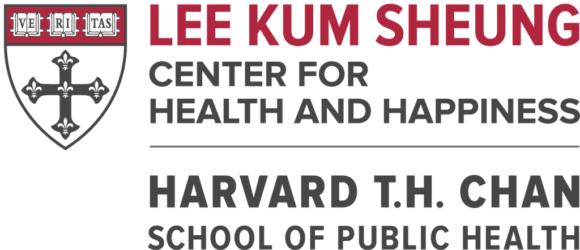“A purpose-driven life may reduce the risk of heart disease.” Center Research Scientist Dr. Eric Kim, PhD, describes his recent work relating purpose in life and health outcomes.
Purpose in life, or the extent to which individuals experience life as being directed and motivated by valued life goals, is a construct traditionally explored by philosophers and theologians. Yet a growing body of empirical research suggests that there is a strong link between a higher sense of purpose in life and enhanced health outcomes. In a review paper published in October 2019, Dr. Eric Kim, Scott Delaney, and Center Co-Director Dr. Laura Kubzansky analyzed the current research on this relationship.
“This review helps contribute to the overall goal of our center by helping bring together research that was originally scattered throughout the literature under one roof,” Dr. Kim said. The authors reviewed a theory that links purpose in life with health outcomes, as well as the potential mechanisms underlying this association. They found that purpose in life has the potential to drive health outcomes by way of three interrelated pathways: enhanced health behaviors (e.g., better sleep quality, more physical activity, healthier eating, increased use of preventive health services), better biological function (e.g., better glucose regulation), and promotion of psychosocial assets and stress-buffering.
“All of these activities may be prompted by an overarching outlook in which life itself is greatly valued.” Dr. Kim said. “For example, lab studies and studies that track people over time suggest that people with a higher sense of purpose in life are less perturbed by various stressors and also recover more quickly when they are more stressed out.” Yet some research shows no association between purpose in life and certain health factors. For Dr. Kim, narrowing the list of specific health outcomes presents an active field of research.
The review also raises questions about the degree to which people can alter purpose in life. “Some evidence suggests that a sense of purpose in life is modifiable via different methods,” Dr. Kim said. “After more research is conducted, what might happen if we ask people to try such interventions and then observe their health behaviors and outcomes?” These interventions could present an innovative way of enhancing people’s health behaviors, and thus, potentially reduce their risk of chronic conditions.
Dr. Kim is now working to evaluate whether the purpose and physical health link endures across some or all key demographic factors (e.g., race/ethnicity, sex, socioeconomic status). He is also evaluating the potential underlying biological pathways that might link a higher sense of purpose with health outcomes. “We’re currently wrapping up analyses on these projects, and many others that focus on purpose in life, so stay tuned!”

